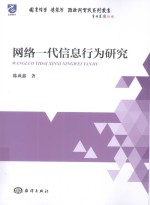

网络一代信息行为研究PDF电子书下载
- 电子书积分:10 积分如何计算积分?
- 作 者:陈成鑫著
- 出 版 社:北京:海洋出版社
- 出版年份:2016
- ISBN:9787502793678
- 页数:216 页
Chapter 1 Introduction 1
1.1 Rationales for studying ratervariability 1
1.2 Status quo of studies on rater variability 2
1.3 An overview of this book 5
1.4 Definition of key terms 5
Chapter 2 Literature review:Studies on rater variability in language performance assessment 7
2.1 Rater variability in language performance assessment 7
2.2 Exploring rater variability using statistical analysis 9
2.2.1 Introduction 9
2.2.2 Rater reliability in Classical Test Theory 9
2.2.3 Rater facet as variance component in Generalizability Theory 10
2.2.4 Rater calibration in Many-Facet Rasch Model 13
2.2.5 Summary 21
2.3 Process-oriented approach to investigating rater variability 22
2.3.1 Raters'decision-making:the“black box”behind the final ratings 22
2.3.2 Indirect evidence 23
2.3.3 Direct investigation of rating process:insights from verbal protocols 27
2.4 Factors accounting for rater variability 46
2.4.1 Extemal factors 47
2.4.2 Internal factors 48
2.4.3 Situational factors 52
2.5 A framework for comparison between rater groups 53
2.6 Summary 56
Chapter 3 Study 1:Investigating the scoring reliability of CET-SET using Many-Facet Rasch Model 57
3.1 Issues in second language speaking assessment 57
3.2 Challenges in test validation 57
3.3 The context of the study 63
3.4 Objectives of the study 64
3.5 Methods 65
3.5.1 Data 65
3.5.2 Instrument(MFRM) 66
3.6 Data analyses and findings 67
3.6.1 Facet map 67
3.6.2 Candidates 69
3.6.3 Tasks 74
3.6.4 Items 75
3.6.5 Rating scales 77
3.6.6 Raters 80
3.6.7 Bias analysis 82
3.7 Conclusions 85
3.8 Implications 87
3.9 Further research efforts to be made 88
Chapter 4 Study 2:Exploring how raters'cognitive and meta-cognitive strategies influence rating accuracy in essay scoring 90
4.1 Subjective scoring:A matter of reliability or validity? 91
4.2 Exploring rating process:Looking into rater variability 94
4.3 Rater cognition studies in writing assessment 102
4.4 Methodology 107
4.4.1 The context of the study 107
4.4.2 Participants 108
4.4.3 Materials 108
4.4.4 Data collection 109
4.4.5 Data analysis 111
4.5 Results and discussion 116
4.5.1 General patterns of differences in broad categories 116
4.5.2 In-depth investigation of differences in the major sub-categories 118
4 6 Summary and further discussion 130
4.7 Conclusion 134
Chapter 5 Conclusions 135
5.1 Summary of findings 135
5.2 Comparison of the two studies 136
5.3 Limitations 137
5.4 Further research efforts to be made 138
Appendix Ⅰ CET-SET rating scale 140
Appendix Ⅱ CET4 rating rubrics forthe writing task 142
Appendix Ⅲ The writing task of the Dec.2006 administration of CET4 and range finders 144
Appendix Ⅳ Sample essays 147
Appendix Ⅴ Instructions and training tasks for think-aloud session 149
Appendix Ⅵ Sample transcripts of raters'thinking aloud 151
Appendix Ⅶ Coding protocols for think-aloud verbal reports 154
Appendix Ⅷ The coding scheme for raters'cognitive and meta-cognitive strategies 155
References 157
Index 172
- 《红色旅游的社会效应研究》吴春焕著 2019
- 《计算机网络与通信基础》谢雨飞,田启川编著 2019
- 《管理信息系统习题集》郭晓军 2016
- 《汉语词汇知识与习得研究》邢红兵主编 2019
- 《生物质甘油共气化制氢基础研究》赵丽霞 2019
- 《东北民歌文化研究及艺术探析》(中国)杨清波 2019
- 《联吡啶基钌光敏染料的结构与性能的理论研究》李明霞 2019
- 《异质性条件下技术创新最优市场结构研究 以中国高技术产业为例》千慧雄 2019
- 《中国铁路人 第三届现实主义网络文学征文大赛一等奖》恒传录著 2019
- 《《国语》和《战国策》词汇比较研究》陈长书著 2017
- 《计算机自适应英语语用能力测试系统设计与效度验证 以TEM4词汇与语法题为例》张一鑫著 2019
- 《高浓度含氮有机废水生物处理新技术》周鑫著 2019
- 《Web前端性能优化》陈铎鑫著 2020
- 《画家与魔鬼》吴礼鑫著 2013
- 《山海经 绝美水墨画卷》沈鑫著;沈鑫绘 2019
- 《迷宫中的灯塔 20世纪上半叶英国文学场中的弗吉尼亚·伍尔夫》胡英,许静雯,杜亚鑫著 2019
- 《三侠剑 5》张杰鑫著 1996
- 《三侠剑 11》张杰鑫著 1996
- 《三侠剑 6》张杰鑫著 1996
- 《三侠剑 10》张杰鑫著 1996
- 《海洋文明小史》倪谦谦责编;王存苗译;(法)雅克·阿塔利 2020
- 《指向核心素养 北京十一学校名师教学设计 英语 七年级 上 配人教版》周志英总主编 2019
- 《北京生态环境保护》《北京环境保护丛书》编委会编著 2018
- 《指向核心素养 北京十一学校名师教学设计 英语 九年级 上 配人教版》周志英总主编 2019
- 《高等院校旅游专业系列教材 旅游企业岗位培训系列教材 新编北京导游英语》杨昆,鄢莉,谭明华 2019
- 《中国十大出版家》王震,贺越明著 1991
- 《近代民营出版机构的英语函授教育 以“商务、中华、开明”函授学校为个案 1915年-1946年版》丁伟 2017
- 《海洋功能食品》王卉 2019
- 《指向核心素养 北京十一学校名师教学设计 数学 九年级 上 配人教版》周志英总主编 2019
- 《西单大杂院-北京老舍文学院首届中青年作家高研班学员小说作品集》北京老舍文学院编 2019
